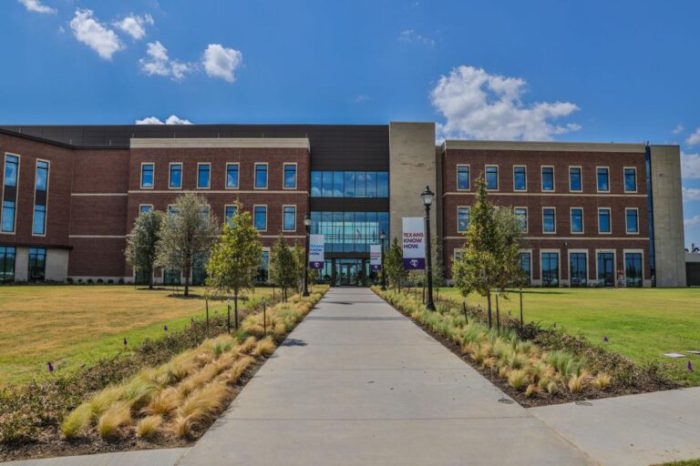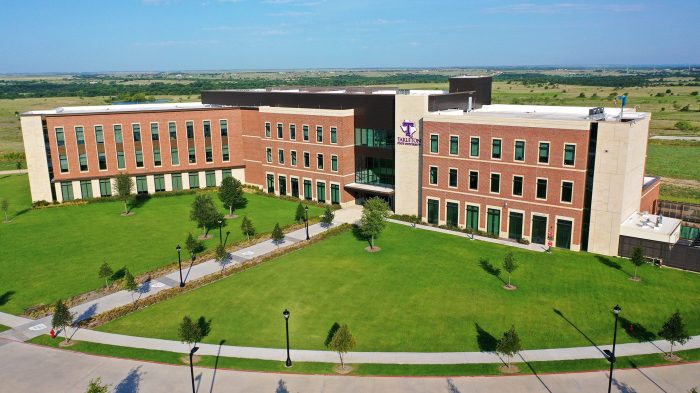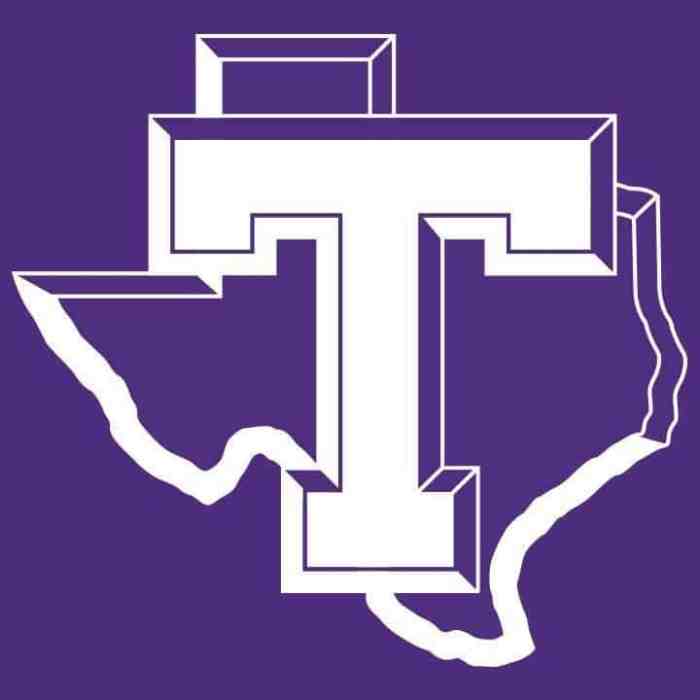Tarleton state university lvn to bsn – Tarleton State University’s LVN to BSN program offers a transformative pathway for Licensed Vocational Nurses (LVNs) to elevate their qualifications to the Bachelor of Science in Nursing (BSN) level. This rigorous program empowers LVNs to enhance their knowledge, skills, and professional standing, opening doors to expanded career opportunities and improved patient outcomes.
The LVN to BSN program at Tarleton State University is designed to provide a comprehensive and supportive learning experience. With a focus on academic excellence and clinical proficiency, the program equips students with the necessary knowledge and skills to excel as registered nurses in various healthcare settings.
Program Overview

The LVN to BSN program at Tarleton State University is designed to provide Licensed Vocational Nurses (LVNs) with the knowledge and skills necessary to advance their careers and become Registered Nurses (RNs).
The program is offered as a hybrid format, combining online and face-to-face instruction. It is designed to be completed in 18 months, and students who successfully complete the program will earn a Bachelor of Science in Nursing (BSN) degree.
Curriculum
The LVN to BSN curriculum includes courses in nursing theory, clinical practice, research, and leadership. Students will also complete a capstone project that demonstrates their ability to apply their knowledge and skills to a real-world nursing problem.
Admission Requirements, Tarleton state university lvn to bsn
To be eligible for admission to the LVN to BSN program, applicants must have a current LVN license, an associate degree in nursing (ADN) from an accredited institution, and a minimum GPA of 3.0. Applicants must also submit a resume, two letters of recommendation, and a personal statement.
Curriculum

The Tarleton State University LVN to BSN program’s curriculum is designed to provide students with the knowledge and skills necessary to excel in the nursing profession. The program consists of a combination of core nursing courses, general education requirements, and clinical experiences.
The core nursing courses cover the fundamental concepts of nursing, including medical-surgical nursing, psychiatric-mental health nursing, maternal-child nursing, and community health nursing. Students will also complete courses in pharmacology, nutrition, and pathophysiology.
General Education Requirements
The general education requirements include courses in the humanities, social sciences, and natural sciences. These courses provide students with a broad base of knowledge that will help them to understand the complex healthcare environment.
Clinical Experiences
The clinical experiences are an integral part of the LVN to BSN program. Students will complete a total of 700 clinical hours in a variety of healthcare settings, including hospitals, clinics, and community health centers. These experiences will provide students with the opportunity to apply the knowledge and skills they have learned in the classroom to real-world situations.
Clinical Experiences

The Tarleton State University LVN to BSN program provides students with extensive clinical experiences in various healthcare settings. These experiences allow students to apply their theoretical knowledge in real-world situations, develop essential nursing skills, and enhance their patient care abilities.
Students participate in a series of clinical rotations throughout the program, including medical-surgical, pediatrics, obstetrics, and mental health settings. During these rotations, students are supervised by experienced nurses and preceptors who provide guidance and support.
Clinical Rotations
- Medical-Surgical:Focuses on the care of adult patients with acute or chronic medical conditions, including those recovering from surgery.
- Pediatrics:Involves the care of children and adolescents with a wide range of health issues, from common illnesses to complex conditions.
- Obstetrics:Provides students with the opportunity to assist in the care of pregnant women, laboring mothers, and newborns.
- Mental Health:Offers experiences in the assessment and treatment of individuals with mental health disorders, including anxiety, depression, and substance abuse.
Responsibilities of Students
During clinical experiences, students are expected to perform a variety of tasks under the supervision of their preceptors, including:
- Assessing patients’ health status and developing nursing care plans.
- Administering medications and providing other treatments.
- Monitoring patients’ vital signs and responding to changes in their condition.
- Educating patients and their families about their health conditions and treatment options.
- Collaborating with other healthcare professionals to provide comprehensive patient care.
Faculty and Resources: Tarleton State University Lvn To Bsn

The Tarleton State University LVN to BSN program boasts a team of highly qualified and experienced faculty dedicated to student success. These esteemed educators possess a wealth of knowledge and expertise in nursing, healthcare, and education, ensuring students receive the highest caliber of instruction and guidance.
Expertise and Experience
The faculty’s expertise encompasses various nursing specialties, including critical care, medical-surgical nursing, pediatrics, obstetrics, and mental health. Their extensive clinical experience in diverse healthcare settings provides them with an unparalleled understanding of real-world nursing practices. This expertise translates into a curriculum that is both rigorous and relevant, preparing students to excel in the ever-evolving field of nursing.
Availability and Support
The faculty is committed to providing exceptional support to students throughout their academic journey. They are highly accessible and responsive, offering regular office hours, email support, and virtual meetings to address student queries and concerns. Their dedication to student success extends beyond the classroom, as they actively mentor and guide students in their professional development.
Research and Scholarship
In addition to their teaching responsibilities, many faculty members are actively involved in research and scholarship. Their ongoing pursuit of knowledge contributes to the advancement of nursing practice and ensures that the program’s curriculum is informed by the latest research findings.
Students benefit from the opportunity to collaborate with faculty on research projects, gaining valuable hands-on experience in the field.
Career Outcomes

Graduates of the LVN to BSN program are equipped with the knowledge and skills to pursue a wide range of career opportunities in nursing.
With a BSN degree, nurses can assume advanced roles within the healthcare system, such as:
Registered Nurse (RN)
- Provide direct patient care in various settings, including hospitals, clinics, and long-term care facilities.
- Assess patients’ health status, develop care plans, and administer medications.
- Monitor patients’ progress, educate them on health conditions, and provide emotional support.
Nurse Manager
- Supervise and lead a team of nurses in providing patient care.
- Develop and implement policies and procedures to ensure the quality and safety of patient care.
- Manage budgets, staff schedules, and other administrative responsibilities.
Nurse Educator
- Teach nursing students in academic or clinical settings.
- Develop and implement curriculum, assess student learning, and provide guidance.
- Stay up-to-date on nursing best practices and research to provide the most current information to students.
Nurse Practitioner (NP)
- Provide primary and specialty care to patients across the lifespan.
- Diagnose and treat illnesses, prescribe medications, and order tests.
- Collaborate with other healthcare professionals to provide comprehensive care to patients.
The salary expectations for BSN-prepared nurses vary depending on their experience, specialty, and location. According to the U.S. Bureau of Labor Statistics, the median annual salary for Registered Nurses was $77,600 in May 2022. Nurse Practitioners had a median annual salary of $123,780.
Program Comparison

The LVN to BSN program at Tarleton State University stands out among similar programs offered by other institutions. To provide a comprehensive perspective, we have compiled a table highlighting key differences in program length, curriculum, and cost.
Program Length
Tarleton State University’s LVN to BSN program is designed to be completed in a flexible and timely manner. The program can be completed in as little as 16 months for full-time students and up to 36 months for part-time students.
Curriculum
The curriculum for Tarleton State University’s LVN to BSN program is designed to provide students with a comprehensive understanding of the nursing profession. The program includes coursework in nursing theory, clinical practice, and leadership. Students also have the opportunity to participate in research projects and clinical internships.
Cost
The cost of Tarleton State University’s LVN to BSN program is competitive with other similar programs in the region. The program offers a variety of financial aid options to help students cover the cost of tuition and fees.
| Institution | Program Length | Curriculum | Cost |
|---|---|---|---|
| Tarleton State University | 16-36 months | Nursing theory, clinical practice, leadership | Competitive with other similar programs in the region |
| Institution A | 18-42 months | Nursing theory, clinical practice | Higher than Tarleton State University |
| Institution B | 15-30 months | Nursing theory, clinical practice, research | Lower than Tarleton State University |
FAQ Insights
What are the admission requirements for the LVN to BSN program at Tarleton State University?
Admission to the LVN to BSN program requires an active LVN license, an associate degree in nursing, and a minimum GPA of 2.75.
How long does it take to complete the LVN to BSN program?
The LVN to BSN program can be completed in as little as 12 months for full-time students or up to 24 months for part-time students.
What are the career opportunities available to graduates of the LVN to BSN program?
Graduates of the LVN to BSN program are qualified for various nursing roles, including staff nurse, charge nurse, and nurse manager. They can work in a wide range of healthcare settings, such as hospitals, clinics, and long-term care facilities.